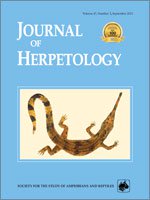The Golden Toad of Monteverde (Cranopsis periglenes), Costa Rica is arguably the “poster child” for the global amphibian decline crisis. Of the known drivers of amphibian declines, it has been hypothesized that the emerging infectious disease, chytridiomycosis, caused by the fungal pathogen, Batrachochytrium dendrobatidis, led to the toad's extinction. The aim of this study was to test whether the last collected and curated C. periglenes specimens were infected with B. dendrobatidis. Fifteen preserved C. periglenes were swabbed for the presence of B. dendrobatidis, three of which were the last ever collected (April 1982). All skin swabs were tested for B. dendrobatidis with a specific qPCR assay and found negative for B. dendrobatidis. Either the zoospore loads from the specimens fell below detection limits, or the tested specimens were not exposed to B. dendrobatidis at the time of collection. This study highlights the importance of collecting noninvasive, field swabs from living amphibians even those facing decline.
How to translate text using browser tools
1 September 2013
Preserved Specimens of the Extinct Golden Toad of Monteverde (Cranopsis periglenes) Tested Negative for the Amphibian Chytrid Fungus ( Batrachochytrium dendrobatidis)
Kathryn L. Richards-Hrdlicka
ACCESS THE FULL ARTICLE

Journal of Herpetology
Vol. 47 • No. 3
September 2013
Vol. 47 • No. 3
September 2013




